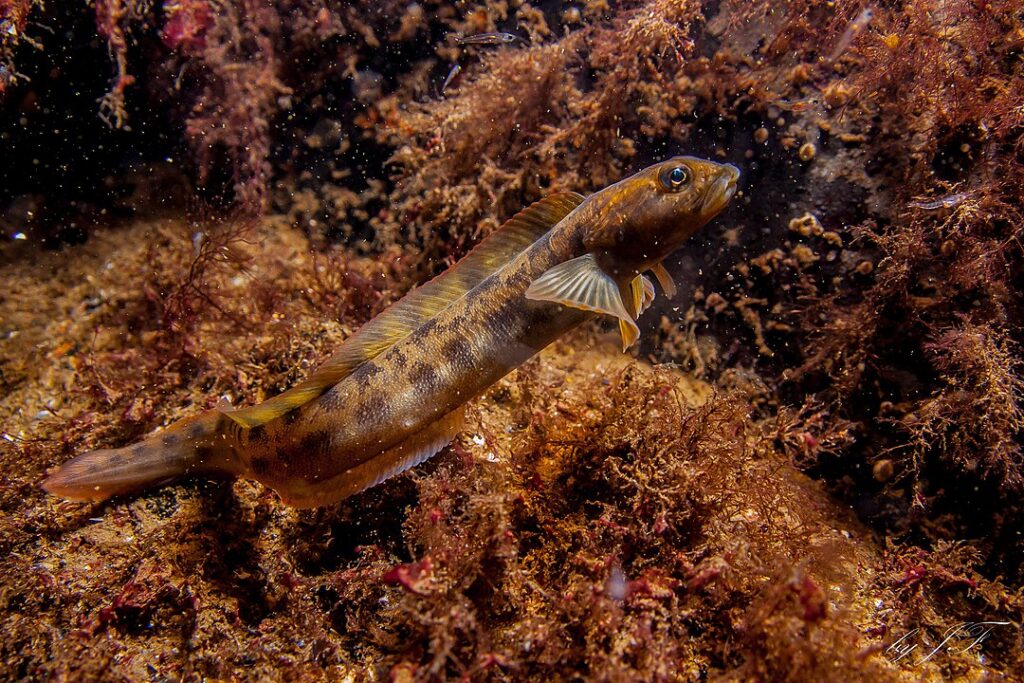Viviparous eelpout
Zoarces viviparus

Has a green skeleton!
The viviparous eelpout, or European eelpout, is an elongated fish which resembles an eel. It has thick, protuberant lips which make it easy to catch prey. The eelpout usually lives close to the bottom in shallow coastal waters, but it can go down to depths of around 20 meters to look for food. It prefers environments with seaweed and algae and can bury itself in the mud on the bottom or hide under a rock. The skeleton of the viviparous eelpout is green.

Photo: Julian-Fahrbach-CC-BY-SA.
The female gives birth to live young
The female viviparous eelpout gives birth to live young, which is uncommon among fish. She produces normal fish eggs, so-called rye, but these hatch inside her body and she then gives birth. The word ‘viviparous’ is derived from the Latin words vivus (“living”) and pario (“give birth to”).
Movie: A small group of young viviparous eelpouts
A remnant from the Ice Age
The viviparous eelpout is an example of what we call a relict in the Baltic Sea. That means it remained in the Baltic Sea after the Ice Age ended and has since been isolated and adapted to a warmer climate than it was used to. It also means that the viviparous eelpout is negatively affected by global warming, since it already lives in warmer temperatures than it used to. The viviparous eelpout is also sensitive to local pollution.
Distribution in Sweden

Along the entire West Coast, Öresund, the Baltic Sea and up to the Gulf of Bothnia.
Threat based on the Red List

Trade regulations
CITES: Not listed.